As published in

Nestled in southeastern Europe, across the Adriatic Sea from Italy and bordering Greece to the south, the ancient and alluring country of Albania is one of Europe’s most rewarding destinations not only for travelers but also for investors and entrepreneurs.
Home to a stunning coastline and a mountainous interior studded with historic sights, Albania is one of the fastest-growing economies on the continent. The country is attracting record amounts of foreign investment in sectors such as tourism, real estate, construction, banking and insurance.
“The government has worked diligently to create a welcoming environment for all—from tourists to major investors,” says Igli Hasani, Albania’s minister for Europe and for foreign affairs. “For many, engaging with Albania has proven to be both rewarding and inspiring.”
Located in the heart of the Balkans, Albania embarked on its democratic journey in the 1990s, embracing its role as a dynamic and forward-looking nation in the region. Since then, a long-term partnership with the US has helped Albania evolve into a free-market economy where the rule of law grows stronger by the day.
A NATO member since 2009, Albania is also well on its way to membership of the European Union. The government began accession talks in late 2024 and expects Albania to be ready for membership by as early as 2030.
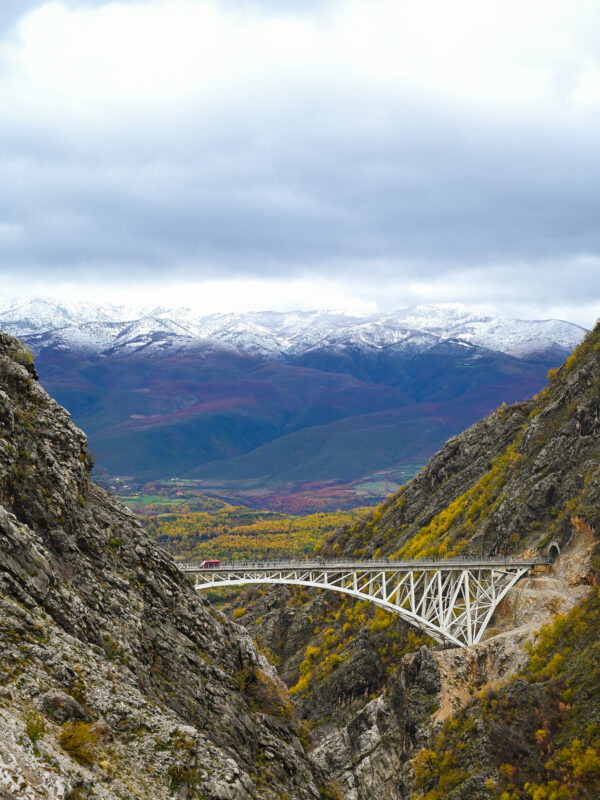
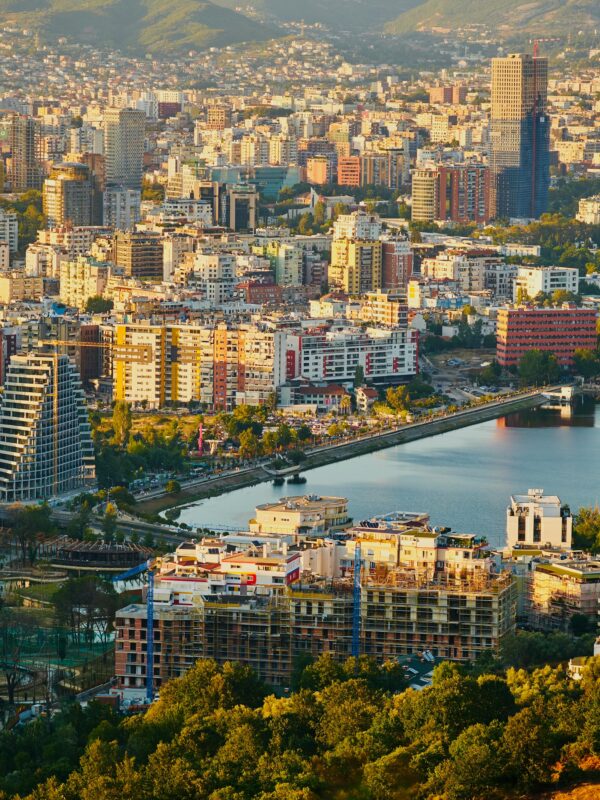
“Albania belongs in the EU and the future of our children must be built in the EU,” Prime Minister Edi Rama said at the start of negotiations in October. “If there is a common national mission for all society, for all political parties, and for all active forces in society, it is to contribute to making this happen as soon as possible.”
Albania’s economy is expanding rapidly as it converges with the EU. According to the country’s central bank—the Bank of Albania (BoA)—GDP per capita has nearly tripled over the past decade. The IMF forecasts that GDP will grow by approximately 3.5% annually for the remainder of the decade, well above the European average.
High rates of economic growth, coupled with judicial reform and the country’s progress towards the EU accession, are helping Albania attract unprecedented levels of foreign investment. The government has rolled out a series of incentives and fiscal exemptions for foreign investors, including a tax rate of just 6% on investments in tourism.
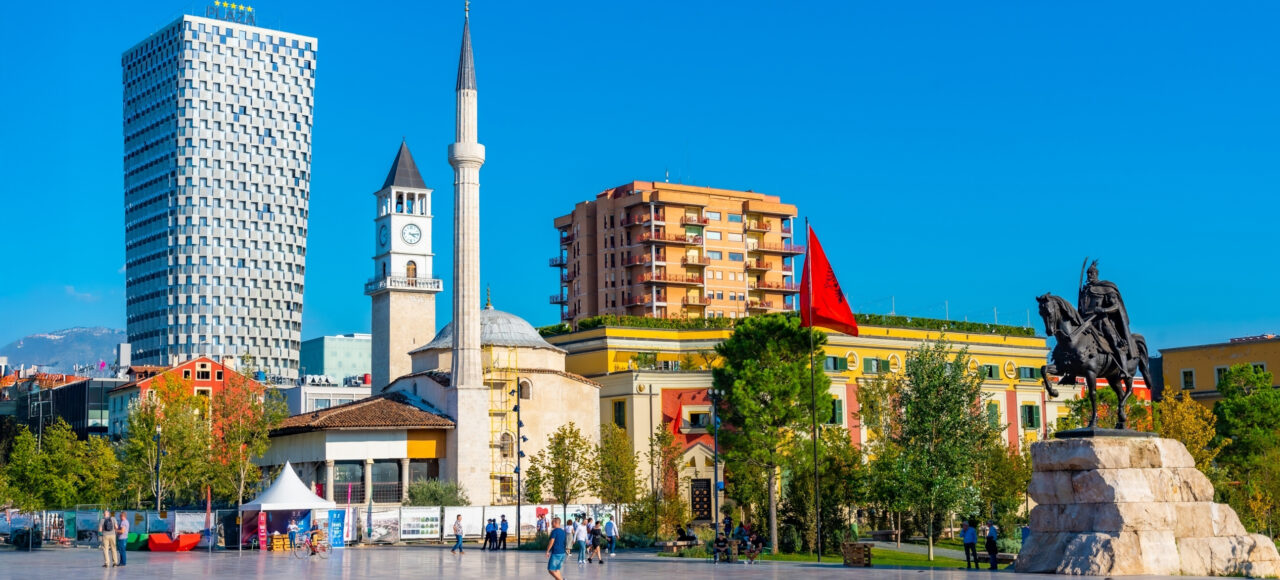
“Albania is eager to attract serious investors, with a particular emphasis on American investors,” the BoA’s governor Gent Sejko explains. “The US is considered a strategic partner.”
Economic growth and political reforms are also transforming Albanian society. Women are taking on prominent roles in all areas of life, from sports and media to business and government. Meanwhile, many members of Albania’s global diaspora are returning home to build new lives in Europe’s up-and-coming land of opportunity.
Albania’s economic outperformance rests on the financial stability delivered by the country’s central bank. In the last decade, the Bank of Albania has strengthened the financial system, ensured stable prices and supported economic growth. The bank is also focused on modernizing Albania’s payment systems and promoting financial inclusion.
When Gent Sejko was appointed governor of the Bank of Albania in February 2015, the economy was flatlining, less than half of the population had a bank account and almost one in four loans had gone bad. Ten years later, Sejko and his team have modernized the country’s financial sector beyond recognition, brought prices under control and helped turn Albania into one of Europe’s fastest-growing economies.
Reflecting on a decade in office, Sejko says that the increased stability of the financial sector has been crucial to Albania’s growth story. The central bank has overseen the consolidation of the country’s banking industry, reducing the number of banks from 16 to 11. At the same time, policymakers have helped reduce the ratio of non-performing loans to under 5%. These measures have created a healthier banking system, enabled double-digit growth in lending to businesses and entrepreneurs, and accelerated economic expansion.
The central bank is also focused on modernizing Albania’s payment systems to cut the costs of transactions, facilitate trade and combat informality. These efforts bore fruit at the end of 2024 when the European Commission approved Albania’s entry into the Single European Payments Area (SEPA), enabling real-time international transfers and integrating the Albanian economy even more closely with the rest of Europe.
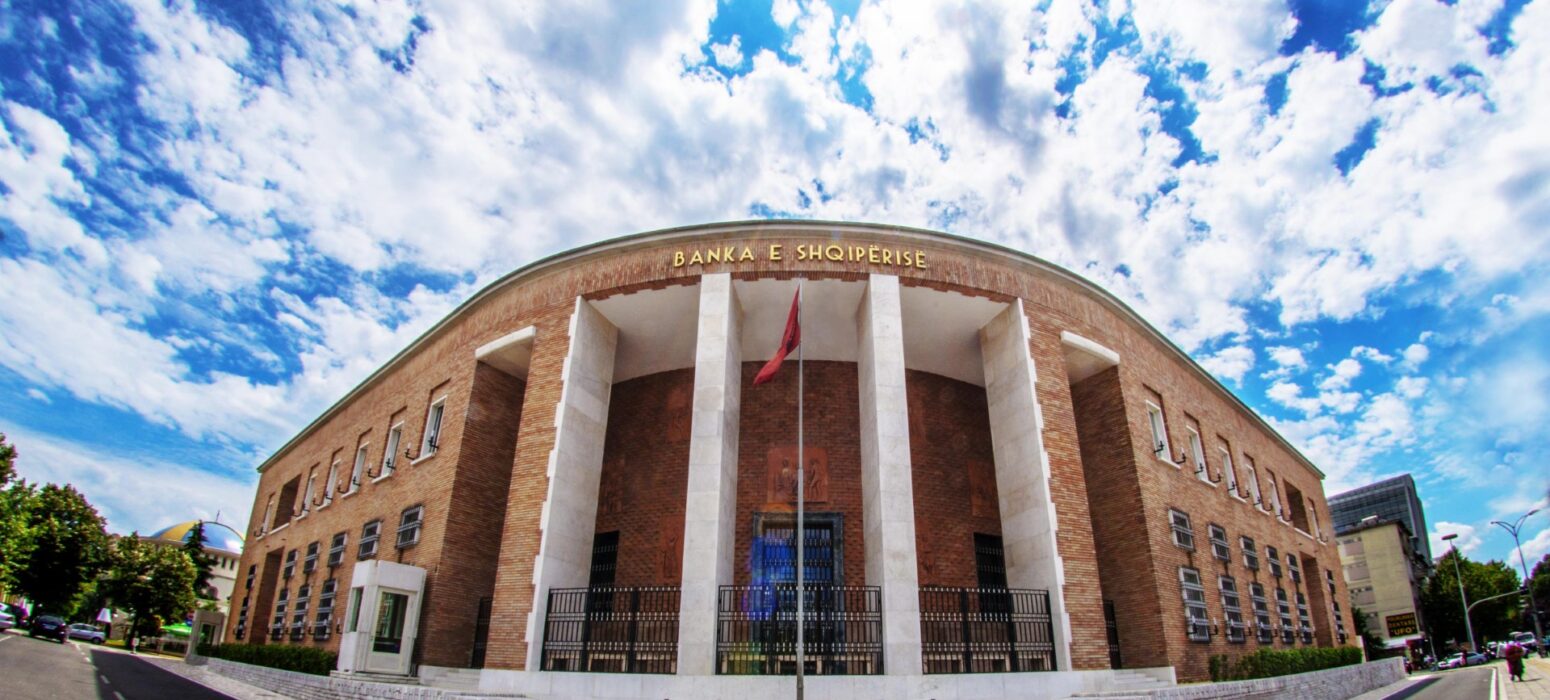
Q: What does joining SEPA mean for Albania?
It is a transformative accomplishment for Albania. We are now working with the banking and payment sectors to integrate SEPA fully within six months. Once completed, financial systems will operate more efficiently, and payment costs will decrease significantly, benefiting individuals and businesses alike. These savings will support reinvestment, promote formal banking transactions, and combat informality in the economy. Additionally, joining SEPA will enhance Albania’s appeal to tourists and traders by simplifying payment processes. SEPA includes EU member countries and enables faster, lower-cost transactions. This milestone marks a significant achievement for Albania, signaling progress in European integration. It reflects our dedication as a nation and as a central bank to align with European standards and strengthen our economic and financial systems.
Q: How is the financial sector performing?
Our financial sector is predominantly represented by banks, which account for over 90% of the sector, making them the main drivers of financial activity. The banking sector is currently in excellent shape, characterized by high liquidity and strong capitalization. About 50% of the sector is owned by EU shareholders. The capital adequacy ratio stands at approximately 19.5%, and excess liquidity is close to 50%, with a balanced loan-to deposit ratio of 50:50. The financial sector continues to be stable, proactive, and sufficiently liquid to support ongoing economic growth.
Reforms have proven effective in fostering economic resilience and sustainability, maintaining financial stability, and ensuring controlled inflation. Having achieved our inflation objectives, we remain focused on sustaining this progress.
Q: What are the key principles guiding your approach to steering Albania’s financial sector?
At the central bank, our primary legal mandate is to ensure price stability, which fundamentally means controlling inflation. Currently, inflation is at 2%, signaling that we have successfully managed to bring it under control.
We have also prioritized maintaining the stability of the financial sector. Over the past decade, the banking sector underwent significant consolidation. About 50% of the sector remains under shareholders from EU countries, complemented by foreign and domestic investors.
We implemented a comprehensive action plan in collaboration with the government and parliament to reduce non-performing loans. This is a significant achievement that has bolstered financial stability and enabled healthier lending practices. Lending growth now averages 15-16% annually, effectively supporting the economy and private businesses.
Q: What is the Bank of Albania doing to promote financial inclusion?
As Albania transitions from a low-income to a middle-income country, substantial progress has been made in formalizing the economy. For example, five years ago, only 40% of the population had a bank account. Today, that figure has risen to over 70%, including significant advancements in rural areas. This rapid progress highlights the effectiveness of our efforts to expand access to banking services.
Expanding banking access has multiple advantages. It not only reduces inequality—an impact recognized by the World Bank and other international institutions—but also supports public authorities and central banks in combating informality. Greater financial inclusion means less cash circulating outside the banking system and a more formalized economy.
VEGA Group has swiftly emerged as a leader and trailblazer in Albania’s renewable energy sector. Founded six years ago, the company has grown from humble beginnings into a diversified energy powerhouse with over 300 employees and operations spanning multiple sectors.
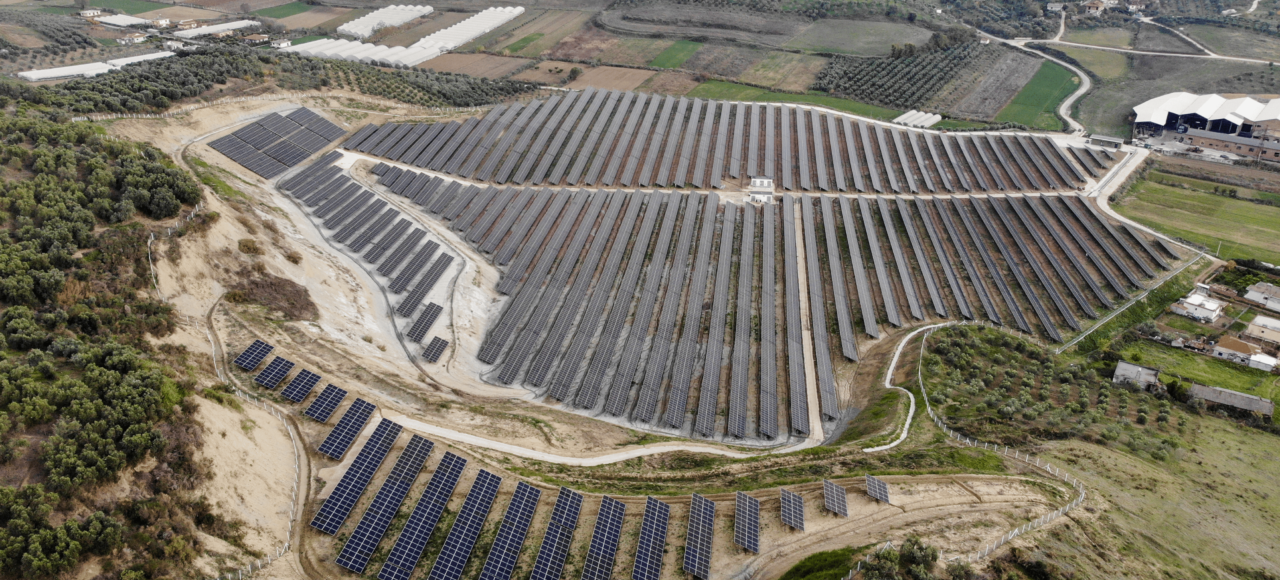
VEGA Group is the brainchild of co-founders Bruno Papaj and Philipp Koronowski, who came together as students with a vision to bring renewable energy to Albania at scale. Initially working out of a two-room apartment, the duo took on every role in the company’s early days, from designing materials to negotiating with suppliers, driven by the potential of Albania’s nascent renewables industry.
Overcoming the twin challenges of an uncertain market and a global pandemic, VEGA Group has grown into a dominant player, delivering over 200 megawatts of clean energy. Comprised of five companies, the group began with VEGA Solar, focused on residential, commercial, and solar installations, before expanding into large-scale photovoltaic (PV) projects with VEGA Energy. Specializing in the design, construction and management of complex PV solutions, current projects include a 120-megawatt solar plant, one of the Balkans’ largest.
VEGA Charging operates Albania’s largest EV charging network, focusing on fast, reliable, and accessible charging to facilitate the green energy transition. RadX, an advanced international EV Charging Management System, will further optimize EV charging with real-time monitoring, dynamic pricing, and an enhanced user experience. VEGA Electric, meanwhile, streamlines the integration of solar power into everyday life through the installation, maintenance, and monitoring of solar panels to ensure maximum performance.
Here the group’s co-founders discuss the company’s dynamic growth trajectory, international expansion plans, and Albania’s potential as an investment destination for PV projects.

Q&As with Bruno Papaj.
Q: What convinced you VEGA Solar could succeed in an emerging market like Albania?
Albania enjoys almost 300 sunny days each year, creating the ideal environment for the PV industry. Although the journey posed challenges, I was confident that this innovative technology would ultimately achieve widespread adoption throughout the country.
Q: What role can VEGA Group play in shaping Albania’s renewable energy market?
The renewable energy market in Albania is in a developmental phase, but its potential is immense. With abundant natural resources, particularly solar energy, the country is well- positioned to become a regional leader in clean energy production. VEGA Group aims to play a leading role by driving innovation, advancing adoption, and fostering sustainability, paving the way for a greener future defined by energy independence.
Q: What have been the greatest challenges in scaling VEGA Group?
The most challenging phase of scaling VEGA Group was managing rapid growth while maintaining our commitment to quality and innovation. Expanding into new markets, particularly internationally, required balancing operational efficiency with building a strong, adaptable team capable of meeting diverse demands.
We overcame this challenge by embracing adaptability and fostering a culture of collaboration. Scaling rapidly required us to be agile, so we focused on empowering our team with the right resources and clear direction. We also prioritized partnerships and sought innovative solutions to navigate complexities, ensuring we stayed aligned with our long-term goals and commitment to quality.
Q: Which of VEGA Group’s sectors do you expect to grow the fastest?
Both VEGA Energy and VEGA Charging have significant growth potential, but VEGA Charging is expected to grow the fastest in the coming years. The global shift toward electric mobility, combined with increasing demand for EV infrastructure, positions VEGA Charging at the forefront of this transformation. Meanwhile, VEGA Energy will continue its steady growth as renewable energy adoption accelerates, particularly with large-scale solar projects driving sustainable development.
Q: What role do you see RadX playing in the future of the EV market?
RadX is set to revolutionize the EV market with its innovative and scalable solutions for managing charging networks. Its advanced platform streamlines operations with real-time monitoring, predictive analytics, and intuitive user interfaces, effectively tackling key challenges in EV infrastructure. Additionally, RadX includes a dedicated mobile app for EV car users, enabling them to easily locate chargers, monitor charging progress, and access dynamic pricing options, enhancing convenience and overall user experience.

Q&As with Philipp Koronowski.
Q: What have been the key strategic decisions guiding VEGA Group’s growth?
I co-founded VEGA Group six years ago with Bruno Papaj after discovering Albania’s sunny climate and untapped potential for solar energy. We initially worked on small projects and grew by seizing the opportunity to develop solar energy in a market with little competition. Today, we operate multiple subsidiaries, including VEGA Energy (solar projects), VEGA Solar (rooftop systems), VEGA Electric (operation and maintenance), VEGA Charging (EV infrastructure), and RadX (EV Charging Management System), with a vision to expand beyond Albania into international markets.
Q: What role does the company’s branding and values play in achieving its strategic goals?
Customer satisfaction is essential to our mission, and we aim to exceed expectations in every project we undertake. Our branding reflects our commitment to quality, and we understand that word-ofmouth plays a crucial role in our market. Ensuring clients are satisfied has been key to our success, especially in a close-knit market like Albania where reputation holds great importance.
Q: How are VEGA Group’s extensive portfolio of projects impacting Albania’s future?
The EV market in Albania is growing rapidly, with many companies and even government vehicles switching to electric. Our infrastructure, featuring over 25 fast chargers and ambitious plans to add 50 more, is crucial for supporting this transition. By providing charging stations and promoting renewable energy, we help drive Albania towards a more sustainable future.
Q: What opportunities exist for foreign investors in Albania?
Albania presents significant opportunities for PV investments thanks to its unique advantages. With more than 300 sunny days per year and abundant non-agricultural land suitable for solar plants, the country offers ideal conditions for solar energy projects.
In addition, potential and general installation costs are lower here than in other countries. We work with American investors who are interested in having a PV asset here in Albania, and we could consult to guide them through the process. We obtain supplies from Chinese companies, and it should be noted that the Chinese have become a monopoly in the solar market, with over 90% of the value chain sourced from China. However, I have talked with colleagues about America investing more in PVs, especially around manufacturing for key PV systems. We are open to working with American suppliers.
Q: How important is sustainability to VEGA Group?
Sustainability is essential to our vision, driving every decision we make as we strive to create lasting solutions for a cleaner, greener future. One of our most ambitious projects is the construction of a 120-megawatt solar plant, one of the largest in the Balkan region. This landmark initiative demonstrates our dedication to driving the transition to renewable energy while opening doors for even larger projects across the region and Europe.
For us, the green economy goes beyond production— it’s about addressing emissions across sectors, including transportation. This is why we take immense pride in the network of EV charging stations we’ve established in Albania, contributing significantly to reducing carbon footprints and supporting our sustainability goals.
Q: How important are technology and innovation in driving a competitive advantage?
Innovation is vital in both construction and maintenance. From construction to maintenance, we continuously leverage cutting-edge solutions to enhance efficiency and performance. We utilize specialized machinery, advanced cleaning trucks, and robotic systems to optimize the output of our solar panels, ensuring maximum reliability and sustainability.
By partnering with leading companies in the PV industry we maintain our position at the forefront of renewable energy innovation.
Q: What are VEGA Group’s plans going forward?
Our next steps focus on expanding our presence across Europe. We have already established offices in Rome and Düsseldorf and are actively working on projects in Italy. We aim to replicate the success we’ve achieved in Albania on a larger scale, meeting the continent’s increasing demand for renewable energy solutions.